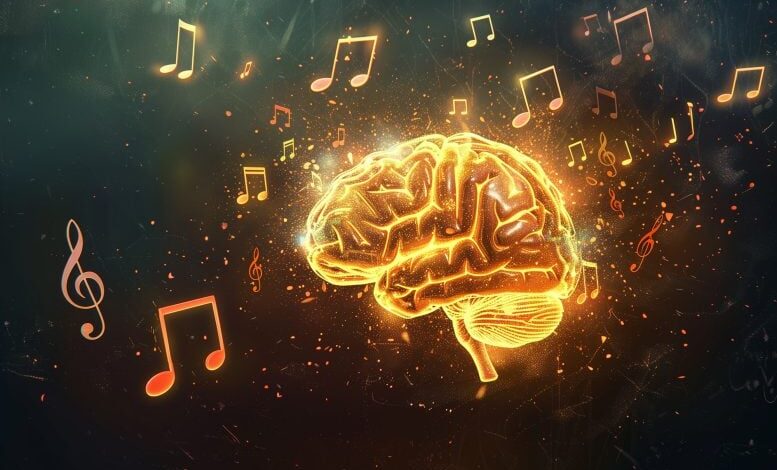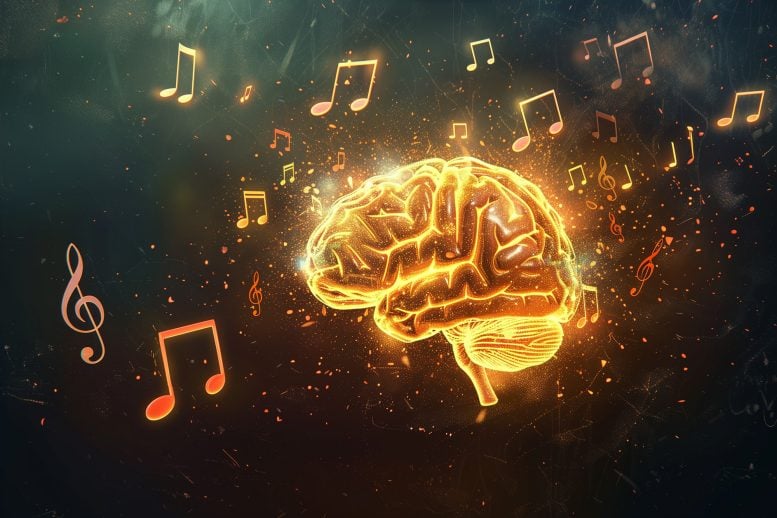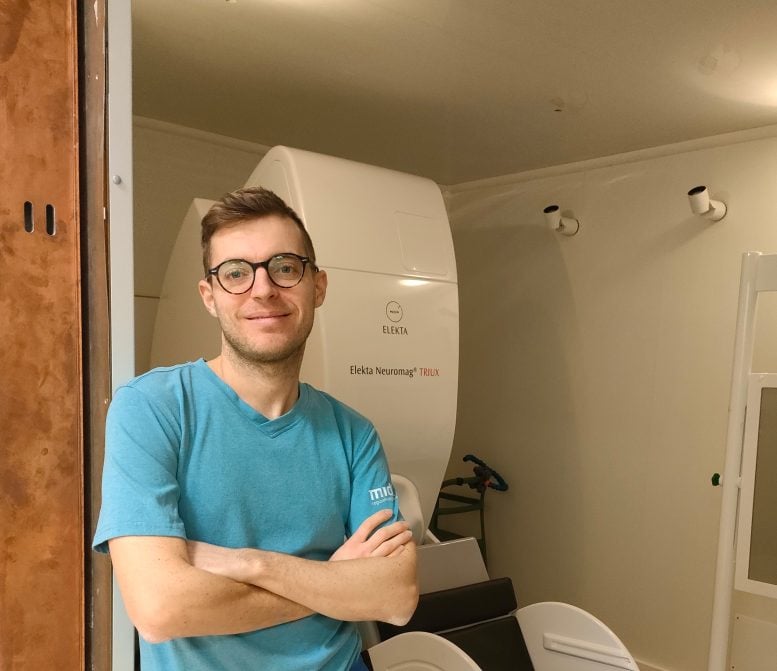How Do We Recognize Songs Instantly? New Study Reveals How Humans Predict Musical Sequences


New research reveals how the brain recognizes and anticipates music, providing insights that could aid in studying cognitive functions and developing dementia screening tools. Credit: SciTechDaily.com
Researchers from Aarhus University and the University of Oxford have collaborated to uncover how our brain reacts to and recognizes music. Their study reveals that listening to music triggers a complex chain reaction of events in the brain, a discovery that could potentially be used in the future to help screen for dementia.
Have you ever recognized a song from just a brief snippet or caught onto a chorus’s rhythm after a few notes? Recent research from the Center for Music in the Brain at Aarhus University and the Centre for Eudaimonia and Human Flourishing at the University of Oxford have revealed how our brains process and anticipate musical sequences.
When we turn on the radio and our favorite song starts playing, our brain reacts in a complex pattern, where areas that process sound, emotions, and memory are activated. In a feedforward and feedback loop, our auditory cortex first responds to the sounds and sends information to other brain areas, like the hippocampus, which is involved in memory, and the cingulate gyrus, which helps with attention and emotional processing. This process helps us recognize songs quickly and predict what comes next, making listening to music an enjoyable and familiar experience.
Broader Implications for Cognitive Studies

Listening to music leads to a flurry of activity in the brain, a new study shows. Associate Professor Leonardo Bonetti, from the Center for Music in the Brain at Aarhus University, is one of the lead researchers behind the study. Credit: Laura Wehmeyer
Knowing how our brain reacts to music can play a pivotal role in understanding our cognitive functions, explains one of the leading researchers behind the study, Associate Professor Leonardo Bonetti from the Center for Music in the Brain at Aarhus University: “Our research provides detailed insights into the brain’s ability to process and predict music and contributes to our broader understanding of cognitive functions. This could make a difference for studying brain health, as it offers potential pathways to explore how aging and diseases like dementia affect cognitive processing over time.”
In fact, understanding how our brain rocks along to Bohemian Rhapsody or reacts to a childhood classic may help researchers detect dementia in the future.
“In the long run, these findings could inform the development of screening tools for detecting the individual risk of developing dementia just using the brain activity of people while they listen to and recognize music.”
In the study, the researchers measured the brainwaves of 83 people as they listened to music, and they will follow up with additional studies, says Leonardo Bonetti.
“Future studies could explore how these brain mechanisms change with age or in individuals with cognitive impairments. Understanding these processes in more detail could lead to new interventions for improving cognitive function and quality of life for people with neurological conditions.”
Reference: “Spatiotemporal brain hierarchies of auditory memory recognition and predictive coding” by L. Bonetti, G. Fernández-Rubio, F. Carlomagno, M. Dietz, D. Pantazis, P. Vuust and M. L. Kringelbach, 21 May 2024, Nature Communications.
DOI: 10.1038/s41467-024-48302-4
The study was funded by the Lundbeck Foundation, the Carlsberg Foundation, and the Danish National Research Foundation.